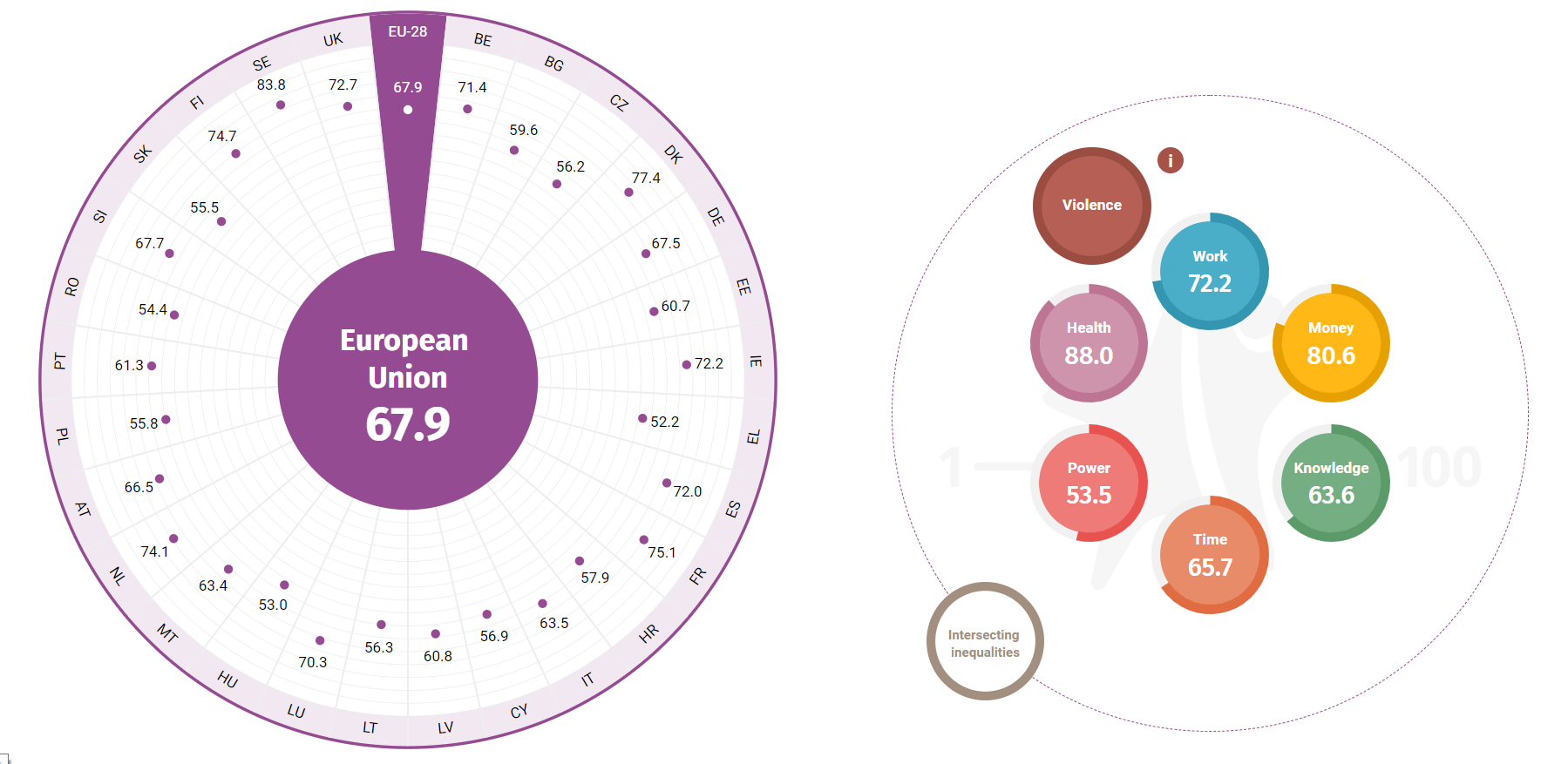
It will take the EU at least 60 years to reach complete gender equality if member states continue making progress at the current pace, according to the latest edition of the EU Gender Equality Index.
This year, the EU scored 67.9 out of 100 in the index, only half a point more than last year, at 67.4. At this pace – a one point increase every two years – it will take the EU more than 60 years to achieve gender equality.
In fact, in the past decade, overall progress has been slower than that, with the score increasing by only 4.1 points. Member states are not all moving at the same pace. Italy, Luxembourg, and Malta progressed the fastest, each gaining around 10 points since 2010, while the Netherlands, the Czech Republic, Poland, and Hungary gained less than one point each.
Out of six rated domains - work, money, knowledge, time, power and health – most progress, accounting for 65 per cent of the 4.1 point increase, was recorded in power, which measures the engagement of women and men in decision-making in different areas of society. However, it remains the lowest scoring area at 53.5 out of 100.
At work, women and men are still largely segregated and the gap is increasing. While only two out of ten ICT jobs are held by women, men make up only 15 per cent of workers in the care sector.
The index did not measure the effect the ongoing COVID-19 pandemic has had on gender equality in the EU, however, the report warns inequalities could widen if women take up more housework and caring responsibilities and unemployment keeps rising in light of the crisis.
“The coronavirus pandemic poses a serious threat to gender equality progress, which we cannot afford. More than ever, policymakers will need to use the results of our index to design inclusive solutions that promote gender equality in our society, both during and after the pandemic,” said Carlien Scheele, the director of the European Institute for Gender Equality, the EU agency that produces the annual index.




 A unique international forum for public research organisations and companies to connect their external engagement with strategic interests around their R&D system.
A unique international forum for public research organisations and companies to connect their external engagement with strategic interests around their R&D system.